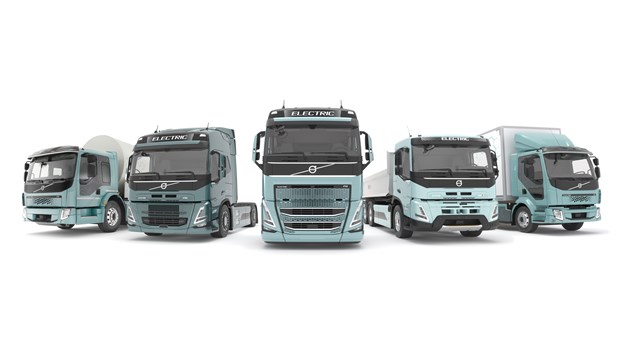Move forms part of 'gradual transition to fossil-free alternatives'
In a sign of the times, and what may eventually transpire in Australia, Volvo Trucks is offering a complete heavy-duty range with electric drivelines starting in Europe in 2021.
Volvo is now running tests of the electric heavy-duty Volvo FH, Volvo FM and Volvo FMX trucks, which will be used for regional transport and urban construction operations in Europe.
These trucks will have a gross combination weight of up to 44 tonnes and, depending on the battery configuration, the range could be up to 300km.
Sales will begin next year and volume production will start in 2022, meaning that from 2021 onwards Volvo Trucks will sell a complete range of battery-electric trucks in Europe for distribution, refuse, regional transport and urban construction operations.
“By rapidly increasing the number of heavy-duty electric trucks, we want to help our customers and transport buyers to achieve their ambitious sustainability goals,” Volvo Trucks president Roger Alm says.
“We’re determined to continue driving our industry towards a sustainable future.
Volvo started manufacturing the Volvo FL Electric and Volvo FE Electric in 2019 for city distribution and waste collection, primarily in Europe.
In North America, sales of the Volvo VNR Electric, a truck for regional transport, will start on December 3, 2020.
Volvo’s says its massive drive towards electrification marks a major step forwards on the road to fossil-free transport.
It contends electric vehicles for demanding and heavy long-haul operations will follow in this decade.
These will be battery-electric and fuel cell electric trucks with a longer range.
Volvo aims to start selling electric trucks powered by hydrogen fuel cells in the second half of this decade.
Alm says the brand’s objective is for its entire product range to be fossil-free by 2040.
Usually fierce rivals, Volvo and Daimler are linking on fuel cell production
“To reduce the impact of transport on the climate, we need to make a swift transition from fossil fuels to alternatives such as electricity.
“But the conditions for making this shift, and consequently the pace of the transition, vary dramatically across different hauliers and markets, depending on many variables such as financial incentives, access to charging infrastructure and type of transport operations.
For this reason, Volvo says most transport companies will change over to electric operation in stages.
In practice, many of them will have a mixed fleet of trucks powered by different fuels during a transition period, Alm adds.
From the company’s perspective, the transition to more sustainable transport is about making the shift as smooth as possible for haulage operators, while factoring in necessary levels of profitability and productivity.
“Our primary task is to ease the transition to electrified vehicles,” Alm says.
“We’re doing this by offering holistic solutions that include route planning, correctly specified vehicles, charging equipment, financing and services.
“The long-term security that we and our global network of dealers and service workshops provide our customers with will be more important than ever.”



